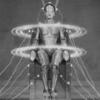Hmm... Well I never knew that....
-
No it's different receptors.
-
Still, I'm sure these things are all bundled together as touch.
The alternative would presumably involve some big conspiracy to deny the existence of the extra senses at all costs. -
How can it be touch if there is no touching?
-
Balance must be one and that can’t be included in the Big 5.
-
No that's bundled together with smell.
-
Your skin touches the heated up, fast moving molecules in the air? I don’t know how it works admittedly.WorKid wrote:How can it be touch if there is no touching?
-
It's discreet.
-
Andy wrote:
Aren’t both of those just an extension of the sense of touch? Just because you can’t see temperature, it doesn’t mean it’s not a recordable physical thing that you perceive through your nerve endings. Likewise proprioception.WorKid wrote:Temperature would be an obvious one for example. Proprioception is another one you can test at home.
Nerve endings are the only thing that sends a signal to the brain (or even not quite all the way if you think of reflexes). Follow to it's logical conclusion means that there is only one sense. Heat and preconception are demonstrably not touch, but yeah five senses is pure bollocks
"I spent years thinking Yorke was legit Downs-ish disabled and could only achieve lucidity through song" - Mr B -
Heat radiates from fire etc and warms the skin, we feel that using the same receptors we use to feel pain/touch and all that, no?
-
Holding the wrong end of the stick since 2009.
-
Andy wrote:
I’ve heard people use ‘discreet’ with that kind of phrasing, but in my experience the phrasing changes when using discrete. “Handwriting lessons should be discrete to the rest of the lesson plan.” I’ve never, ever heard phrasing where one can be dropped in to replace the other, confusing the intended meaning. Your example above sounds wrong. They’re also not contradictory. Handwriting could be taught in a discreet manner, discrete from the rest of the curriculum.tigerswiftly wrote:For example, "Handwriting should be taught in a discrete manner VS Handwriting should be taught in a discreet manner." So... antonyms(ish).
Aren’t both of those just an extension of the sense of touch? Just because you can’t see temperature, it doesn’t mean it’s not a recordable physical thing that you perceive through your nerve endings. Likewise proprioception.WorKid wrote:Temperature would be an obvious one for example. Proprioception is another one you can test at home.
No such thing as a fish? They said we probably used to be able to. Some people say they can, but controlled experiments prove they can’t.The Daddy wrote:There was a thing on some podcast I listened too about the ability to perceive magnetic fields. Can’t remember what they said though.
Proprioception has nothing to do with sense of touch. What about balance, pressure, time? -
I wasn’t familar with propreoception. My dictionary told me that it was, “of, relating to, or made active by, stimuli signalling the relative positions of body parts.” That’s just your sense of touch. Balance is a mix of sight, hearing, and touch. Pressure is touch. A sense of time isn’t a ‘sense’ in the same way as a sense of smell or touch.
That’s the problem with a lot of examples in the QI clip (as I remember it, but I’m watching Blue Planet just now). The additional ‘senses’ that people cite either confuse the discrete meanings of ‘sense’ or they confuse the brain combining the results of the five senses. -
I think you've unified all the senses to touch.
Smell is just molecules touching inside the nose.
Taste is just molecules touching the tongue.
Sight is just light touching the eye.
etc. -
Andy wrote:I wasn’t familar with propreoception. My dictionary told me that it was, “of, relating to, or made active by, stimuli signalling the relative positions of body parts.” That’s just your sense of touch. Balance is a mix of sight, hearing, and touch. Pressure is touch. A sense of time isn’t a ‘sense’ in the same way as a sense of smell or touch.
That’s the problem with a lot of examples in the QI clip (as I remember it, but I’m watching Blue Planet just now). The additional ‘senses’ that people cite either confuse the discrete meanings of ‘sense’ or they confuse the brain combining the results of the five senses.
Proprioception is absolutely not touch. It is the ability to sense where a body part is without seeing it. You only touch it once you've indicated where it is. -
Andy wrote:I wasn’t familar with propreoception. My dictionary told me that it was, “of, relating to, or made active by, stimuli signalling the relative positions of body parts.” That’s just your sense of touch. Balance is a mix of sight, hearing, and touch. Pressure is touch. A sense of time isn’t a ‘sense’ in the same way as a sense of smell or touch. That’s the problem with a lot of examples in the QI clip (as I remember it, but I’m watching Blue Planet just now). The additional ‘senses’ that people cite either confuse the discrete meanings of ‘sense’ or they confuse the brain combining the results of the five senses.
Proprioception is definitely very different to touch. You can lose proprioception, and retain sensation, and vice versa (we test them as separate entities). Your sense of proprioception comes courtesy of your muscle spindles, and is kind of amazing, and extraordinarily important. Its why you know exactly where part of your body is despite neither being able to see it, nor being in contact with anything.
Your ear is involved in balance, but it's not predominantly "hearing" but rather movement of fluid within your semicircular canals that detects rotational movement. Pain, temperature, and pressure might broadly be labelled as "touch", but they require entirely different receptors, and 2 of the 3 don't necessarily even require any physical contact (which might be considered a pre-requisite for "touching").
etc etc etc.
The idea of 5 senses is completely nonsensical and arbitrary. There are either loads of senses, or alternatively we just have one called "brain stuff". In fact I'd go so far as to suggest that teaching kids that we only have 5 is actively harmful as it encourages the very thinking that we all (not just you) indulge in, of trying to badge them as one of the Big 5, which often leads to a failure to understand our own bodies, and the messages they send. (Especially when it comes to understanding, and living with, pain.) -
It definitely sounds like it boils down to how fine-grained you want to be about it. Anywhere between 1 and lots, but no real reason why it should be five.
-
They are the easiest to grasp, I guess? Eyes, ears, nose, mouth, and the rest of your body.
-
Okay, I get a lot of that (tin’s) explanation. Although, I’d argue that, while your foot may not be in contact with anything external, it’s in contact with you.
It’s probably my misunderstanding of what is defined as a sense, but I see a fundamental difference between the awareness and inputs of external factors, and internal flow charts and programs.
Pedant alert; you’re always in direct physical contact with things, they’re just not always visible to the human eye. You might not be touching a flame, but you are touching the air particles that are behaving in a dramatically physically different manner to their usual state.tin_robot wrote:2 of the 3 don't necessarily even require any physical contact (which might be considered a pre-requisite for "touching") -
I do hope you mean that they’re easy to teach, and that you’re not calling me a simpleton.tigerswiftly wrote:They are the easiest to grasp, I guess? Eyes, ears, nose, mouth, and the rest of your body.
-
For kids I mean, sure. Or when we as humans started discussing the concept of senses.
-
Andy wrote:Okay, I get a lot of that (tin’s) explanation. Although, I’d argue that, while your foot may not be in contact with anything external, it’s in contact with you.
It’s probably my misunderstanding of what is defined as a sense, but I see a fundamental difference between the awareness and inputs of external factors, and internal flow charts and programs.
Pedant alert; you’re always in direct physical contact with things, they’re just not always visible to the human eye. You might not be touching a flame, but you are touching the air particles that are behaving in a dramatically physically different manner to their usual state.tin_robot wrote:2 of the 3 don't necessarily even require any physical contact (which might be considered a pre-requisite for "touching")
But if it's not the nerves/receptors that detect touch that detect heat or proprioception, then it's not touch is it? -
Andy wrote:Balance is a mix of sight, hearing, and touch.
Wait, what? -
Diluted Dante wrote:Andy wrote:Balance is a mix of sight, hearing, and touch.
Wait, what?
So you can't balance in the dark/with your eyes closed?
-
Andy wrote:Okay, I get a lot of that (tin’s) explanation. Although, I’d argue that, while your foot may not be in contact with anything external, it’s in contact with you. It’s probably my misunderstanding of what is defined as a sense, but I see a fundamental difference between the awareness and inputs of external factors, and internal flow charts and programs.
To be fair, what, exactly, is meant by a "sense" is still the subject of much debate (or was last time I looked) - precisely because of conversations like this. Which is why it's often regarded as easier just to say "it's one of these five things" - though I guess I would say it's any physiological mechanism that contributes to our perception of ourselves and the world.
Pedant alert; you’re always in direct physical contact with things, they’re just not always visible to the human eye. You might not be touching a flame, but you are touching the air particles that are behaving in a dramatically physically different manner to their usual state.[/quote]tin_robot wrote:2 of the 3 don't necessarily even require any physical contact (which might be considered a pre-requisite for "touching")
True, I guess. But if detecting the amount of energy within the air that you're in contact with is to be filed as the same thing as detecting the pressure of something you push against - then aren't all senses just touch as well? Detecting photons of light on your retina - is that touching? Detecting chemical compounds on your tongue - surely that's touch too then? Same for the stuff going on in your nose. As for detecting vibrations in the air against a drum - that seems at least as much tangibly touch as detecting temperature change is. So, based on that, all senses are touch.
Sorry - I'm being a bit deliberately and irritatingly obtuse. But you get my point.
As Monkey says, the senses are anywhere between 1 and lots. There are five that are easy to understand, relate to universal day to day experience, and have specific parts of the body we can point to and say "that does this" - so those are the ones we teach our kids. Which, given that no-one can agree on a single, final, definitive list, is what we've stuck with - but it's not remotely accurate. -
I feel like I’ve learnt a lot today! It’s been a good class.I am a FREE. I am not MAN. A NUMBER.
-
Stan Bush uses proprioception but doesn't believe in it.
-
I think you can draw a line between things that you sense when they make contact with your skin/body in general and things that have to make contact with a specific organ to register. Light photons anywhere other than your eye don't do anything, it's a specific sense separate from the others. It's not really a stretch to bundle together the effects of external stimuli on your skin - pressure, pain, heat etc. - and see those as distinct from the other senses.tin_robot wrote:True, I guess. But if detecting the amount of energy within the air that you're in contact with is to be filed as the same thing as detecting the pressure of something you push against - then aren't all senses just touch as well? Detecting photons of light on your retina - is that touching? Detecting chemical compounds on your tongue - surely that's touch too then? Same for the stuff going on in your nose. As for detecting vibrations in the air against a drum - that seems at least as much tangibly touch as detecting temperature change is. So, based on that, all senses are touch.
Also, when you describe sense in this way it suggests a reason why balance and proprioception wouldn't be in the same category. They're internal systems rather than reactions to or ways of interpreting external data.
In my completely made up as I went along opinion. -
This thread is a good read. Well done WorKid.
Howdy, Stranger!
It looks like you're new here. If you want to get involved, click one of these buttons!
Categories
- All Discussions2,715
- Games1,879
- Off topic836












